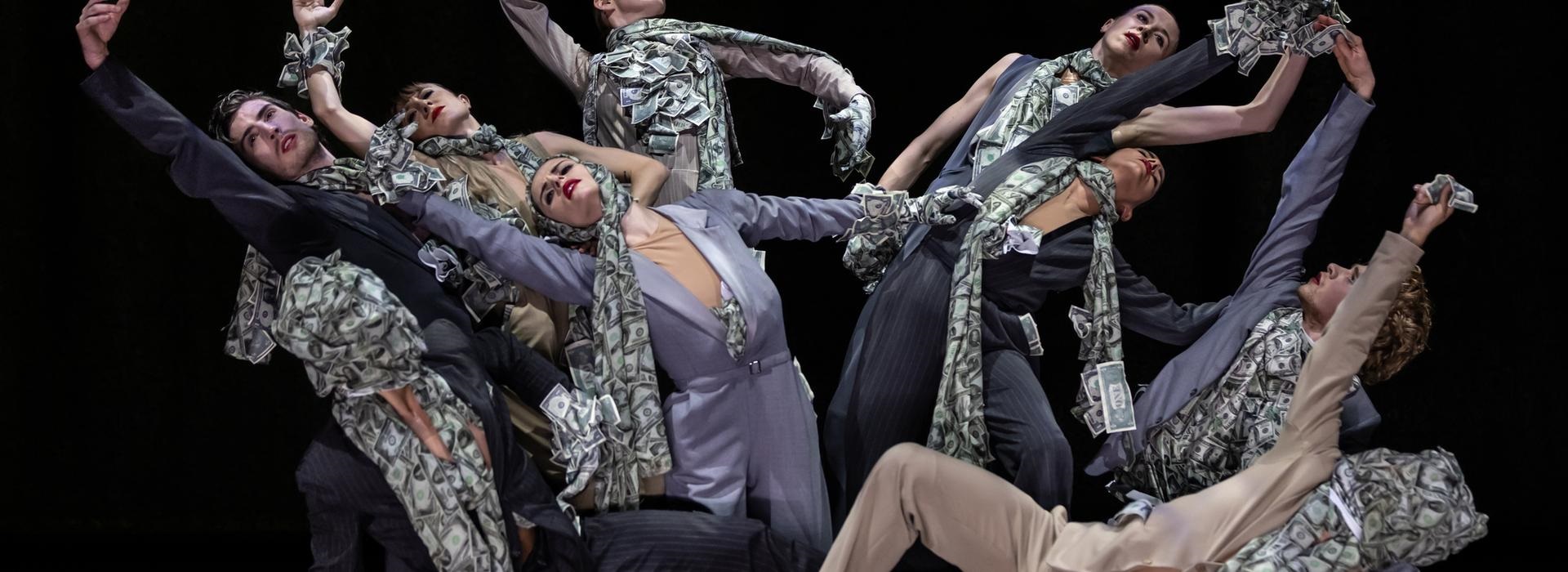
The Seven Sins / Gauthier Dance//Dance Company Theaterhaus Stuttgart
The seven sins
A production of the Theaterhaus Stuttgart
in co-production with La Biennale di Venezia (I), Festspiele Ludwigshafen at Theater im Pfalzbau (D)
In collaboration with SWR / ARTE & EuroArts
Choreography by Aszure Barton, Sidi Larbi Cherkaoui, Sharon Eyal, Marco Goecke, Marcos Morau, Hofesh Shechter, Sasha Waltz
In collaboration with Embassy of Spain in Italy and Instituto Cervantes in Rome
Among dance fans, the names on the cast list alone are bound to be much admired, as this production brings together seven world-renowned choreographers. Each of them turns a mortal sin into a dance piece for Gauthier Dance. The result: a tableau of devilry composed of seven world premieres by Aszure Barton, Sidi Larbi Cherkaoui, Sharon Eyal, Marcos Morau, Sasha Waltz and the two Gauthier Dance artists-in-residence Marco Goecke and Hofesh Shechter.
The choreographers of the Seven Sins
It begins with Laziness, entrusted to Barton, who uses connotations and fleeting images to charge his dancers' language with meaning, turning it toward mysterious darkness or brilliant irony. Instead, greed is investigated by Cherkaoui, who juxtaposes myths, nations, eras, and musical styles, gliding from genre to genre with ease, trying to capture the essentials everywhere. For Envy Sharon Eyal demonstrates the hypnotic power of synchronicity, the incredible dynamics of an organism made up of human-machine bodies: minimal changes or serial variations disrupt the order of its groups, individuals break free from the repetitive patterns of a seemingly post-human society. And yet Gluttony represented by Goecke through bodies that flutter, contract and tremble, giving rise to a whole new universe of movements for his dancers' arms and upper bodies, countless allusions permeate his noir pieces. Pride for Marcos Morau is composed of images, and his Catalan artist collective La Veronal transforms dance into a theatrical performance, relying equally on texts, sets, media and light: they create captivating pictures, a synaesthetic, multimedia dance theater that the Spanish choreographer has developed into his narrative language. Lust literally explodes on Hofesh Shechter's stage, where a strong wind from the street blows through the theater, existential rage burns in his wild and restless ensembles: the London-based Israeli choreographer describes aggression, chaos and the desire for freedom, often set to hard rock rhythms composed by himself. Finally, Wrath, entrusted to Sasha Waltz: hailing from the independent scene, this icon of contemporary German dance theater has shaken up the Berlin metropolis and its theaters in bold, rough and often bizarre ways.


